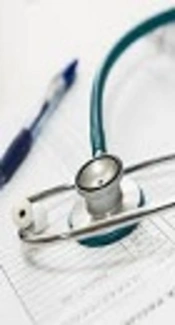1. Background
Professionalism is considered as a core competency in medicine (1). Although several medical organisations, such as accreditation council for graduate medical education emphasize the importance of improving professionalism in medical students (2), the movement to teach this competency presents challenges to medical educators (3). Evidences show that the use of integrative teaching techniques, such as movies, is very efficient for improving such competencies in medical education. Movies have unique features to develop a useful tool for helping students in building a humanistic perspective of doctoring and improving professionalism (4). The use of movies helps initiation of discussions, revealing students’ attitudes and knowledge, and identifying areas for improvement.
What is the problem?
In Iran, little attention is paid to psychosocial aspects of medicine as an expected competency in the medical curriculum. In compliance, Tehran University of Medical Sciences in parallel with the reform of the undergraduate medical curriculum considered reinforcing psychosocial aspects of medicine in terms of the expected competencies required for medical students. Professionalism and medical ethics is one of the competencies expected for medical students after graduation. Hence, the medical school of TUMS initiated a project, using movies, with the aim of teaching professionalism to medical students using this tool.
What have we done?
To this end, movies were used for both teaching professionalism and medical ethics as an extra-curricular program for medical students. A task force was established to plan and implement the program across the Tehran University of Medical Sciences. The task force, as the starting point, evaluated the movies relating to professionalism and medical ethics, thus selecting those that were aligned with the perceived project aims. Four movies were selected and screened: “The Doctor”, “Something the Lord Made”, “The Brain”, and “The Physician”. The show times were announced using playbills via physical as well as virtual medium. After each session, a survey was conducted by the task force to evaluate the degree of achievement of the project aims. In each session, the selected faculty members with special expertise on the subject were invited to participate in an expert panel after screening. The panels normally composed of 6 to 7 experts.
Each session lasted between 3 and 4 hours. At the beginning of each session, students received a brief introduction to the program objectives. After the show, ethical issues related to medicine, addressed in the movie, were discussed and analyzed by experts and students attending the session, who had the opportunity to reflect on the movie, expressed their views and raised their questions. At the end of the sessions, the moderator summarized the main educational points discussed during the session. An anonymous evaluation form was distributed to evaluate the effect of the program on the students’ motivation and satisfaction.
The analysis of the participants’ evaluation forms revealed that a significant number of students, who participated in the movie sessions, believed that using movies was a valuable method to improve their motivation and understanding towards learning professionalism and medical ethics. The findings indicate that the majority of students (85.8 %) completely believed that participation in these events was a good experience for them, and they were eager to attend such programs. With regards to the application of the main points learned in the events in their professional performance, 56.5 % completely agreed and agreed.
What lessons were learnt?
While promoting important benefits from showing movies at our Medical School, the implementation process was highly challenging. Student participation in the movie sessions fluctuated from about 300 in some sessions to 30 in others. The following reasons were noticed for the poor attendance in the sessions: students had to attend another class at the same time, they didn’t take the movie sessions seriously because the optional programme did not count towards their course grade or educational requirements, and as some movies were in English, and the attendees could not understand the concept of the films due to poor English language competency. To address some of these challenges, sessions were planned according to the students’ course schedule, and were announced at the beginning of each term. In addition, the movies were screened either in original language or dubbed. In conclusion, TUMS project and its implementation experience demonstrated that the use of movies could be helpful as an interactive teaching tool to teach professionalism at the medical school. The study convinced the researchers that using movies in medical education, offered as an optional course, is much more effective in improving a conscious appreciation of the importance and value of the professionalism of medicine.
2. Conclusion
The study convinced the researchers that using movies in medical education, offered as an optional course, is much more effective in improving a conscious appreciation of the importance and value of the professionalism of medicine.
